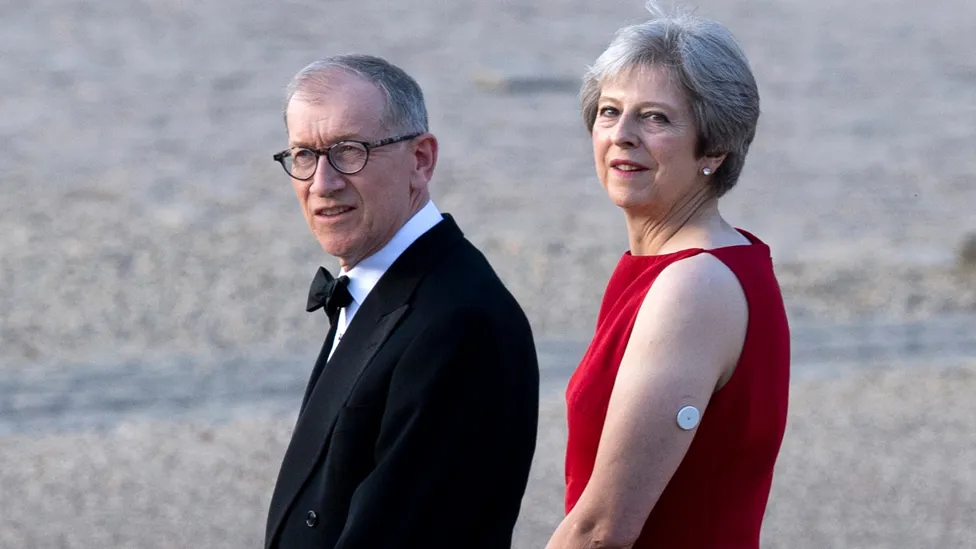Theresa May horrified by type 1 diabetes disordered eating
Theresa May was "horrified" to discover the serious health risks for those with both an eating disorder and type 1 diabetes.

This can lead some to restrict their insulin intake for fear of putting on weight, which can be fatal.
Lady May, diagnosed with type 1 in 2013, told Radio 4’s Today programme better NHS support was needed.
She chaired a parliamentary inquiry into the life-threatening consequences of disordered eating with type 1.
Body image
The inquiry heard from Lesley and Neal Davison, whose daughter Megan killed herself aged 27.
Megan had an eating disorder and was not taking the insulin she needed to stay alive, known as type 1 disordered eating (T1DE).
Lady May told BBC News: “When I first heard about it… the idea that a young woman could actively not take her insulin because of concern about body image – because it can lead to putting on weight – I was horrified by that.
“But you can understand why young people might get into that position.”
‘Conflicting pressures’
Type 1 diabetes means the body’s immune system mistakenly attacks cells within the pancreas, which then stop producing the hormone insulin, blood-glucose levels rise and the insulin has to be replaced through daily injections.
About 400,000 people in the UK have type 1 – and T1DE could be affecting up to 40% of the females and 15% of the males, research suggests.
They often restrict the amount of insulin they take, to control their weight, which can lead to unstable blood-sugar levels, malnutrition and a raised risk of depression and anxiety.
Better awareness of the condition, more mental-health support and a joined-up approach by the NHS are all needed so that healthcare professionals are aware of the “conflicting pressures” on people with type 1 and an eating disorder, Lady May said.
‘Isolating people’
NHS England is running eight pilot schemes combining diabetes and eating-disorder support into one service.
People using them have been shown to recover more quickly from T1DE, with fewer admissions to hospital, but there are question marks over their future funding.
Type 1 diabetes charity JDRF UK chief executive Karen Addington said T1DE was “both devastating and widespread”.
“It can be a frightening and lonely experience, isolating people from their loved ones,” she said.
“If you’re experiencing symptoms, you’re not alone.
“Please reach out to your GP and diabetes specialist – they’re there to guide you.”

Lady May also reflected on her own experiences with type 1 diabetes, after being diagnosed in her 50s.
“There are good days and bad days,” she told Today.
Over time, she has learned to think “very carefully” about her blood-sugar levels – mainly affected by food intake and exercise – and how to control it with daily insulin injections.
Lady May said type 1 diabetes should not stop anyone from doing anything – even from becoming prime minster, as she was between 2016 and 2019.
Artificial-pancreas technology
She confessed that Jelly Babies had been her “go-to” when she had felt her blood sugar dropping during meetings.
And at other times, she felt her blood sugar spiking, often before Prime Minister’s Questions because of the build-up of adrenaline.
Lady May said she’d been inspired by Great Britain rower and Olympic gold medallist Sir Steve Redgrave, who was diagnosed during his sporting career. He had said: “Diabetes had to learn to live with me, rather than me with it.”
She also hailed new artificial-pancreas technology which means thousands more people will be able to manage their condition far more easily on the NHS.
The system uses a glucose sensor under the skin to automatically calculate how much insulin is delivered via a pump.







